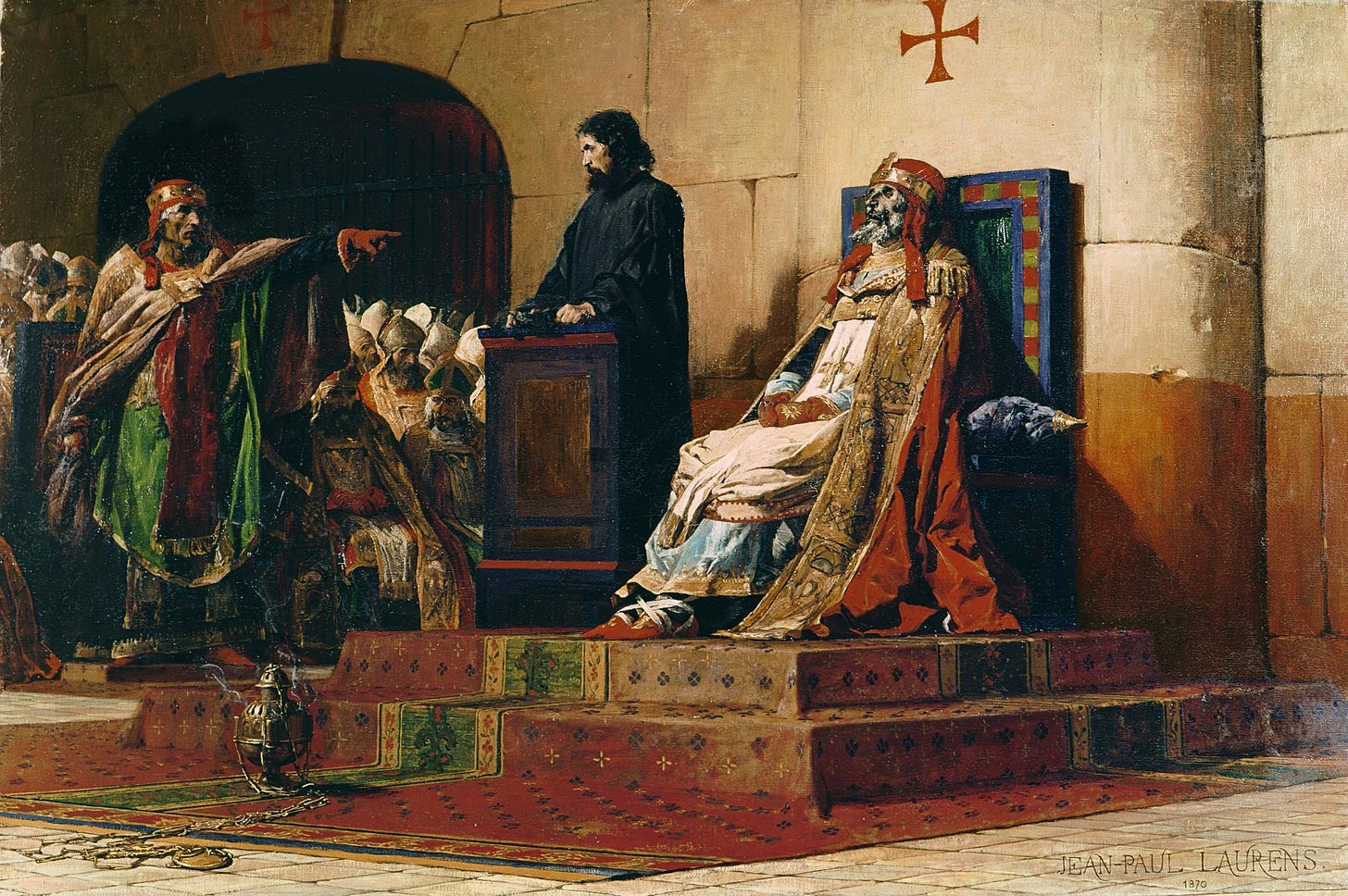On the historians of philosophy
"I would only believe in a god who knew how to dance."
I have found myself acting as a scissor, as when a room is divided at my supposed irreverence; that I dare to dance in hallowed halls! There are those that say I should handle their idols as sacred objects, to carefully inspect and appraise them; but no more than that! Such are as morbid archaeologists taking dead cities and mere corpses as the topic of their inquiry. Somehow they seek answers among fragments, dead bones; it is but a variation on the Cadaver Synod. You wish to play-act as defence for the accused? Alright, as you will—but that is not my game.
Yes, herein lies my arrogance: to think that I have the capacity for thought! Yes, of course, a heresy; yet sadly one of which I am really quite convinced—I believe that an individual can think for himself; and by that I mean, think in concrete confrontation with the questions of actuality. Those of the Cadaver Synod prefer to wear sock-puppets in their thinking; it makes them more comfortable. This way there are no sharp edges; no mistakes. They need never bare themselves.
They will punish any that do, that I have seen; waving credentials they will demand respect for the sacred texts which we maltreat by claiming to know what they were talking about!1 This is the whole task, according to them: that we pay due reverence to the sacred texts and then, after that, we may perhaps offer a tentative appraisal of what they meant. This is a mode of philosophy suited only to the end-times! They are pharisees; or worse, mere hangers-on. There is no arriving at the past; only the present exists and to seek strict historicity is an absurdity. All seem to accept that; yet here, how do you act?
Yes, I claim to speak of Being and Becoming as if my words were meaningful without reference to some external authority; what arrogance! And worse yet, or much the same, I even pretend to see shapes below the specific words which your beloved author used—such irreverence; it is not enough that I be exiled, better that I be executed. This was the crime of Socrates, to show the emperor was naked; in this he was taken as presupposing himself above them, but I am not. If I appear to raise myself up it is only that I tear others down. You who would trust in the masses and their idols, as if always needing always check with the collective; as if only by such a divinity did your words have any meaning! I will take my ostracism; it is easy for me. Solitude is the proper partner for such a dance.
Nietzsche would be horrified by you, frigid sheep; the all-too-many. You ask that I write of great texts, alright—what but that for which you were gathered? You pretend to know him, far more than me; I say only that I have heard him, or heard in this some echo, and then I speak for and of myself alone! You say: ‘Nietzsche thought’—over and over, you repeat this invocation as if a protective charm. You hide behind his books! He would have hated you:
“Go away from this town, oh Zarathustra,” he said. “Too many here hate you. The good and the just hate you and they call you their enemy and despiser; the believers of the true faith hate you and they call you the danger of the multitude. It was your good fortune that they laughed at you: and really, you spoke like a jester.
Yes, I am a fool; it is sensible of you not to take me seriously, carry on as you were my Nietzschean friend—as if it were a diet or a brand; you have bought the books, performed the various rites; now you are a Nietzschean! If that it is what it means, then what was he? He was Nietzsche and never wanted another; why would you try to wear his skin? Disgusting. But there are many that embody this spirit, that which he encouraged, in their daily lives; many far more than me, at least physically, as Nietzsche himself was also a sickly sort; and yet here, in thought—here you are timid in comparison. Of course, you ask, what does Nietzsche say? Here, you like to read:
Courageous, unconcerned, sarcastic, violent—thus wisdom wants us: she is a woman and always loves only a warrior.
Not what they were saying, and this is an important distinction: what they were talking about.


